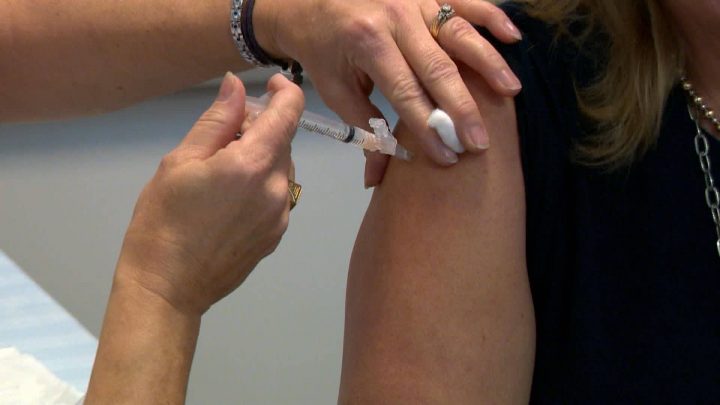Flu shot clinics are now up and running in Halifax to try and get ahead of a new influenza year.

“When we talk about influenza it’s more of a respiratory illness. Sudden onset of fever, chills, headaches, sore throat and muscle aches, extreme fatigue, cough,” Dr. Robert Strang said, Nova Scotia’s chief public health officer.
There were 61 reported deaths in the province last influenza season, according to Nova Scotia Public Health. High numbers of hospitalizations and deaths were reported across the country due to a particularly severe strain of the virus.
READ MORE: Alberta sees 86 flu-related deaths so far this season
“H3N2 strains typically you don’t get as good protection from the vaccines so we had the type of strain that gives more severe illness plus pretty poor coverage with the vaccine of that main strain,” Dr. Strang said.
The World Health Organization monitors how influenza impacts the world each season, then uses that information to create a new vaccine every spring.

Get weekly health news
“What we know is that Australia, the southern hemisphere, has had a fairly mild flu season. That doesn’t guarantee what we’re going to get but it’s a bit of an indication and it’s an H1N1 strain so we have to see,” Dr. Strang said.
According to statistics from the Nova Scotia Health Authority, only 39 per cent of employees reported getting immunized last season.
“We are caring for people that are very vulnerable. They’re sick and they’re weak. Especially those that are looking after seniors and those that are looking after infants. We need to protect ourselves as much as we need to protect them while we’re caring for them,” Janet Hazelton said, the president of NSNU.
Dr. Strang says the importance of flu shots expand far beyond one’s personal health.
“We have an obligation to try to prevent spread to those who are the greatest risk. So, our elderly grandmother, our young child who has diabetes, our sibling or our friend who may have a chronic illness.”








Comments